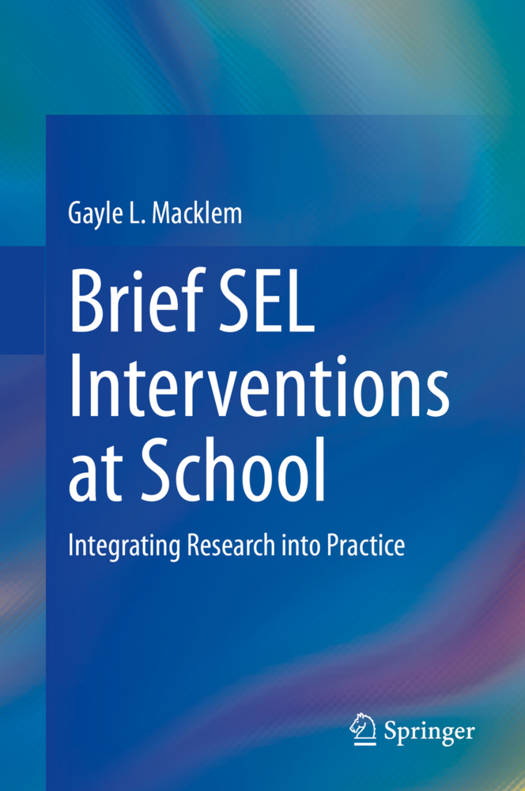
- Afhalen na 1 uur in een winkel met voorraad
- Gratis thuislevering in België vanaf € 30
- Ruim aanbod met 7 miljoen producten
- Afhalen na 1 uur in een winkel met voorraad
- Gratis thuislevering in België vanaf € 30
- Ruim aanbod met 7 miljoen producten
Brief Sel Interventions at School
Integrating Research Into Practice
Gayle L MacklemOmschrijving
This book explores the social-emotional learning (SEL) movement in the United States and the current situation in schools that both supports and impedes the infusion of programs and strategies that actually work for children and adolescents. The volume describes overarching issues to include what the term evidence-based should mean as well as the confusing and sometimes ill-advised proliferation of programs that become components of the many barriers to the success of the SEL movement. The book examines why it may be necessary to take a step back when considering nonacademic interventions in schools. This book explores the need to - and the process of - vetting interventions before trying to implement them in the classroom.
In addition, the volume examines the various frameworks and standards involving SEL to shape a thoughtful approach that makes a difference in each student's academic success. It offers a scientific approach to selecting brief, easy to implement SEL strategiesfor school psychologists, teachers, and related mental health and educational professionals. The book describes each strategy in detail and addresses how to use these strategies, when to use them, and for whom they are likely to work. The volume concludes recommended implementation and dissemination strategies.This book is a must-have resource for researchers, clinicians/practitioners, and graduate students in child and school psychology, educational psychology, social work as well as all interrelated sub disciplines.
Specificaties
Betrokkenen
- Auteur(s):
- Uitgeverij:
Inhoud
- Aantal bladzijden:
- 251
- Taal:
- Engels
Eigenschappen
- Productcode (EAN):
- 9783030656942
- Verschijningsdatum:
- 26/01/2021
- Uitvoering:
- Hardcover
- Formaat:
- Genaaid
- Afmetingen:
- 156 mm x 234 mm
- Gewicht:
- 544 g

Alleen bij Standaard Boekhandel
Beoordelingen
We publiceren alleen reviews die voldoen aan de voorwaarden voor reviews. Bekijk onze voorwaarden voor reviews.











